- Home
- Adam Croft
The Thirteenth Room (Kempston Hardwick Mysteries Book 4) Page 8
The Thirteenth Room (Kempston Hardwick Mysteries Book 4) Read online
Page 8
‘Interestingly enough, I did my own research and found out that she’d been having a bit of a dalliance with a local chap called Kevin McGready,’ Hardwick said.
‘There you go, then. Combine the debt problem and the secret boyfriend and you’ve got a pretty good reason to want to top yourself, haven’t you?’ Warner said.
‘I can see exactly what you’re saying, but I’m still not sure I’m convinced,’ Hardwick said. ‘It sounds like a rather good motive for murder to me. And anyway, your suicide theory still doesn’t explain Kimberly Gray’s death.’
‘It doesn’t need to. They were separate incidents with nothing linking them,’ Warner said. Hardwick didn’t bother to reply and instead chose to roll his eyes. There was no point in going over old ground again. Warner wouldn’t be swayed.
‘What did the forensics people say about the scene?’ Hardwick finally asked, breaking the silence. ‘About the chair positioning, I mean. Was it commensurate with the victims having kicked them away?’
‘I think you mean the deceased, Hardwick. Victims require murderers. And to answer your question, it’s an open verdict on that. Yes, it’s entirely possible that Elliot Carr and Kimberly Gray kicked the chairs away. If you’re asking me could someone else have done so, then yes, of course, if they were stood facing the same way. That can never be definitely ruled out, but take it from me: it’s as positive as it can be that there was no foul play involved.’
‘I see,’ Hardwick said, mostly for the sake of having to say something.
‘Now, you’ll understand that everything I’ve told you is confidential, of course. And purely to put your mind at rest that nothing strange has been going on. No murders, no conspiracies, nothing. The motives and reasons for Elliot Carr killing himself are clear. So I want you to drop this bee in your bonnet. Do you understand?’ Warner asked.
Hardwick chose his words very carefully. ‘Yes, I understand what you want.’
Warner had been gone less than two minutes when there was an odd bang at the front door. Hardwick got up and quickly walked into the hall, flinging the door open with force. There was no-one there. As he was about to close the door again, he noticed a sheet of folded paper nailed to it. Leaving the nail in place, he tore the sheet of paper from it, unfolded it and read.
STOP STICKING YOUR NOSE WHERE ITS NOT WANTED. KEEP OUT OF ARE LIVES AND BUTT OUT UNLESS YOU WANT TO BE NEXT. YOUVE BEEN WARNED.
More offended by the dreadful spelling than the death threat, Hardwick furrowed his brow and glanced quickly around the front garden, knowing full well that the perpetrator would be long gone by now. He went back inside, closing and locking the door behind him.
25
As much as Ellis liked a drink, he was not a big fan of hangovers. Tiredness he could deal with, but hangovers were not something he could abide. Fuelled with black coffee and half a bag of sugar, then, he booted up his laptop and decided to do some research on copycat suicides.
His first port of call was to do some more research into the Bridgend suicide phenomenon. Like most people in the UK, he had been well aware of the basics of the case as it had been widely reported in the media, but had since fizzled out and become a rather blurred memory. On the other hand, most of Ellis Flint’s memories were rather blurred.
He opened Google, typed in Bridgend suicide theories and hit enter. After browsing down the results page he clicked to open a couple of links in new tabs. One of the first results to catch his eye was a forum thread from the Fortean Times, a British magazine which focuses on strange phenomena.
The thread went into some discussion about one of the users’ theory that the Bridgend suicides were the result of a ‘Mosquito device’, designed as a dispersal device, emitting ultra high frequencies and used to drive young people insane, thus taking their own lives. Even Ellis Flint, having plenty of form in being a sucker for the odd conspiracy theory, was not entirely taken in by this one. Like most conspiracy theories, this one didn’t answer the most pertinent question: What would be the purpose?
Ellis’s next Google result took him to David Icke’s forum. As if the posters on the Fortean Times page hadn’t seemed bonkers enough. The users on this forum were touting theories about ley lines and mobile phone masts, even going so far as to suggest that the masts were ‘broadcasting kill-yourself frequencies’ as one poster theorised. Ellis made a note on a piece of paper to do some further research on the possible effects of mobile phone masts.
Further down the thread, Ellis noted another reference to ley lines. This particular user had suggested that King Arthur’s body is rumoured to have been buried in the Bridgend area, and that this might be a reason for some sort of curse or supernatural explanation. This appealed to Ellis’s senses, and he made another note to research around this subject. He recalled the tale of the hauntings at the Manor Hotel and told himself he’d look further into that, too.
It was not often that Ellis Flint thought that other people had bizarre theories on life, but this morning he had already found the murkiest depths of the internet. Further posts from forum users threw up wild theories concerning wind farms, power stations and even government experiments or messages being sent by the Illuminati. Ellis liked the odd ghost story as much as the next man, and had always thought that there must be something to the world of the paranormal, but this lot were something else.
After all, Einstein said that every action must have an equal and opposite reaction, didn’t he? He thought it was Einstein, anyway. Where did all of the energy and neural electricity go once someone had died? It couldn’t just disappear. Ellis was feeling more and more certain that there could be a paranormal explanation to the suicides of Elliot Carr and Kimberly Gray. Had they heard about the hauntings at the Manor Hotel? Had they seen the ghost of the old woman? Had she told them to kill themselves? Was the place cursed?
There were too many questions for Ellis’s alcohol- and caffeine-addled brain, and he was now suddenly feeling very tired. He closed his laptop lid, drank a pint of water and went back to bed for a couple of hours.
26
Later that morning, Kempston Hardwick once again found himself at South Heath station, waiting to get a train into London.
The journey by train, including the walks at either end, would take him over two hours each way, but Hardwick was not one for driving. He much preferred to sit on a train, staring out of the window as he processed his thoughts. Driving would require too much of his attention and distract him from thinking.
He had the journey planned out in his head already: he’d take the train down to St Pancras International, the Piccadilly line down to Holborn (he’d walk if the weather was good, but it wasn’t) and then across to Greenford on the Central line. It was a long journey, but Hardwick felt it vital that he speak to Kimberly Gray’s family and friends urgently. He was, by now, convinced that there was someone or something that needed stopping before any more lives were lost.
If someone had killed both Elliot Carr and Kimberly Gray, it would be finding a motive that would be most difficult. On the face of it, these two people seemed to be completely unconnected. Why would someone want to kill them both?
As the train pulled away from South Heath station, Hardwick’s thoughts turned to Ellis Flint’s theories. He’d mentioned something about a paranormal influence at the Manor Hotel. Hardwick was certainly not one for believing in ghost stories, but he couldn’t help but wonder whether there might be some sort of psychosomatic influence at play. What if both Elliot Carr and Kimberly Gray had been aware of the stories about the Manor Hotel being haunted? What if they had thought they’d seen or heard something and this had led them to take their own lives?
Hardwick vaguely recalled reading something about this. Stressful situations, heightened awareness and even the presence of alcohol could all have contributed to both Elliot Carr’s and Kimberly Gray’s minds playing tricks on them. Elliot Carr had just had a row with his wife and had a few drinks. Kimberly Gray had just been at a conc
ert to see her idol and had also had a few drinks. Could some form of hysteria be to blame here? It was possible, but Hardwick’s nose for suspicion hadn’t let him down yet and he was quite sure it wasn’t doing so now.
He rolled an idea around in his head. What if Elliot and Kimberly had somehow been drugged with something other than alcohol? He presumed the police will have ordered toxicology reports and addressed that already, but Hardwick knew he could never assume anything of Tollinghill Police. Some form of sedation would be a way of getting them up to room thirteen and onto the chair, though. However it was done, it would require a fair amount of strength — a well-built man, if not two, and in view of the hotel guests and staff. He made a mental note to mention this to Warner and perhaps have the toxicology reports looked at more closely.
As the rolling countryside gave way to the sprawling metropolis of London, Hardwick closed his eyes and ran through what he intended to ask Kimberly Gray’s parents. He was sure the police would’ve already broached the obvious lines of questioning (Did she have a history of depression? Had she ever spoken about taking her own life? How did she seem when she left the house? What plans had she made for the future?) but he would need to ask them himself. DI Warner had been less than helpful so far, and he couldn’t risk going back and confronting him again until he had some more concrete proof that something was amiss.
At just eighteen years of age, Kimberly was hardly likely to have confided too much in her parents, particularly on matters of a personal nature. At that age, she was far more likely to speak to her friends about any problems she might have had. As her friends were with her at the hotel on the night she died, they’d also have a far better idea as to her state of mind at the time, too, so Hardwick knew he’d have to find out the names and addresses of Kimberly’s friends and speak to them.
This wasn’t something he was looking forward to; he’d always found that people around their late teens made far better liars than adults. That was the age at which most lies were told, so it became second nature to them. An adult, with a wiser understanding of the world and knowing the full ramifications of even a little white lie, would be far more likely to give off small, barely noticeable signals when he or she was lying. Barely noticeable to most people, but not to Kempston Hardwick. After all, he had dedicated his life to searching for the truth and honing his skills in order to be able to catch those who had committed the ultimate sin.
The power of the subconscious was more evident than ever for Hardwick as he opened his eyes after what seemed like just a few seconds, but as the computerised female voice on the train announced that the train was just pulling in to St Pancras International. For one of the first times since hearing about the death of Elliot Carr, he’d fallen asleep.
27
Ellis woke up later that morning feeling bright and breezy. Incredible what an extra couple of hours’ sleep could do to a hangover. He sat up, swung his legs out of bed, put on his clothes and headed downstairs to continue his online research. Having already looked into teenage suicide pacts earlier that day, he had opened up a number of other leads which he wanted to investigate.
First on his list was the subject of mobile phone masts and the effects they have on brainwaves. One theory being touted online was that this could be the reason why so many young people in Bridgend had taken their own lives over the past few years, with their brain waves being somehow affected by nearby mobile phone masts. Ellis didn’t know where the nearest mobile phone mast was to the Manor Hotel, but he had made a note to look that up too.
He opened his web browser, went to Google and typed in mobile phone mast theories. The number of results stunned him: almost half a million. One of the first websites was a news report on the theory that mobile phone masts were responsible for the decline in the British bee population, with the radiation from masts interfering with the bees’ own in-built navigation senses.
Ellis added the word ‘suicide’ to the end of his search query and pressed enter. This time, there were even more results. One was a newspaper article written in 2008, which stated that a government advisor on mobile radiation had pointed out that all of the young people who killed themselves in Bridgend lived a lot closer to a mobile phone mast than the national average. The article stated that masts are, on average, eight hundred metres from residential homes in Britain. The Bridgend victims, however, lived just three hundred and fifty-six metres away on average.
He found a link from one article to a page on Ofcom’s website which allowed users to enter their postcode and see which mobile phone masts were nearby. He entered the postcode for the Manor Hotel and navigated his way around the map.
He worked out that the nearest masts of any type were a Network Rail one on the train line, about 3,200 metres away and an O2 mobile phone mast a little closer but in the other direction. Surely too far away to have any major effect, he thought, seeing as both masts were about four times further away from the Manor Hotel than the national average. That theory would have to go on the back burner.
He crossed through the item on his list and looked at the next one. He’d written King Arthur theory, and had to take a few moments to try and recall what it was. Suddenly remembering, he typed King Arthur theory Bridgend into Google. He could only find a couple of passing references to the theory that King Arthur could have been buried in Bridgend, although most reputable sources he checked all stated that it couldn’t be even said for definite that King Arthur ever existed.
This certainly wasn’t Ellis’s favourite theory. The complete lack of information meant that it could probably be discounted, plus even Ellis, who liked a ghost story better than most, could not quite see the logic in why people would start to commit suicide in an area in which a possibly mythical person might or might not have been buried 1,500 years ago.
That was not to say that Ellis didn’t think there was some sort of paranormal explanation, though. The problems with hauntings at the Manor Hotel seemed to be well documented, particularly locally, and the supernatural events had taken place fairly recently — certainly in comparison with the King Arthur theory.
Ellis decided that the paranormal theory needed looking at more closely. This wasn’t something he could broach with Kempston, though. He knew what his reaction would be. No, he needed something more concrete before he could bring the subject up again.
28
Hardwick was pleased to get off of the Underground and make the short walk from Greenford station to Kimberly Gray’s parents’ house. Hardwick was never keen on crowds, but he rather loved London. For him, the crowds were the only things that gave the city a sour air. He loved to people-watch and be around people, but had to balance that very carefully with his dislike of loud or crowded areas. This was not always an easy task.
After only a few minutes, he arrived at the address he’d found for the parents of Kimberly Gray and he used the brass knocker to rap loudly on the door, the handle squeaking and squealing as he did so.
Once again, as per usual, Hardwick was not asked to show any form of identification. He very rarely was, which he saw either as a sign that people really should take more care over who they speak to or that he perhaps carried with him an air of authority. There are those who say they can spot a police officer in a crowd. Hardwick thought that perhaps the amount of time he’d spent dealing with criminals and murderers might have given him that same beacon-like glow.
Once he’d introduced himself to Kimberly’s parents, her mother offered him a cup of tea. Not just a cup of tea, but a choice of tea. Hardwick chose Earl Grey, naturally. He sipped at the steaming cup as they all shuffled into the living room and sat down on the three sofas.
He noted that Kimberly’s mother, who’d introduced herself as Katherine (with a K), seemed to be a Type B mourner: the type that copes with grief by trying to carry on as normal, even coming across as uncaring or aloof. Hardwick, despite all signs to the contrary, did not like being around grieving people and much preferred this Type B mourner
.
Kimberly’s dad, Tony (with a T), on the other hand, seemed really rather subdued. Then again, it was entirely possible that he was always like this. Behaviours and quirks of character were the sorts of things that Hardwick tended to notice quite quickly, and it was often these traits which had been the downfall of suspects in the past.
‘We’re not really quite sure what we can say,’ Katherine said, her voice clipped and refined. The product of her private education at Wycombe Abbey School for Girls, Hardwick thought, having already done his research — mostly through Facebook, of course. Gone were the days of having to delve through records and follow a paper trail. These days, everyone seemed quite happy to put their entire life story on Facebook, making Hardwick’s job much easier as a result. He had resisted using it for a long time, and technically still didn’t use it. Not under his own name, anyway; he now had a range of aliases and means for finding out information using the social networking site.
‘I just need to take down as much detail as you know,’ Hardwick said, not wanting to give away the content of any of his questions until he’d asked them. That way, he could observe Katherine and Tony’s body language as they first heard the question and then responded to it.
‘We’ve already told the other officers everything we know,’ Tony replied. Ah, yes, Hardwick thought, noticing that her husband’s voice gave away his schooling background, too: Slough Comprehensive. ‘Don’t you lot ever talk to each other?’ Ah. The angry griever, Hardwick thought.
‘We just need to clarify a few details to make sure everything we’ve noted is accurate,’ Hardwick said, noticing Tony Gray’s eyebrows rising by a good few millimetres. ‘Firstly, if it’s not too upsetting, I’d just like to find out a little more about Kimberly’s general manner and state of mind in the days and weeks leading up to her death, if I may.’

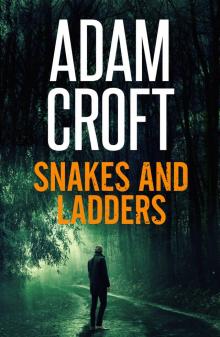 Snakes and Ladders
Snakes and Ladders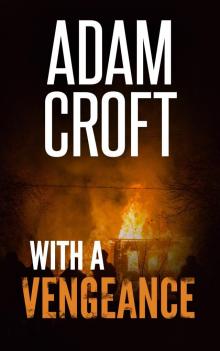 With A Vengeance
With A Vengeance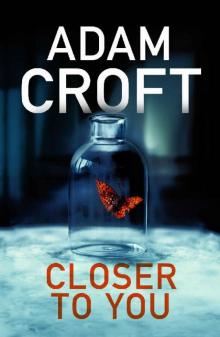 Closer to You
Closer to You In Cold Blood
In Cold Blood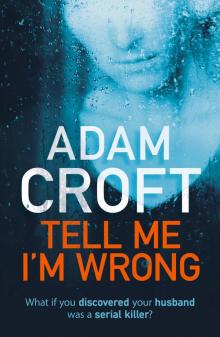 Tell Me I'm Wrong
Tell Me I'm Wrong![[Knight and Culverhouse 09] - In Plain Sight Read online](http://i1.bookreadfree.com/i/03/16/knight_and_culverhouse_09_-_in_plain_sight_preview.jpg) [Knight and Culverhouse 09] - In Plain Sight
[Knight and Culverhouse 09] - In Plain Sight Dead & Buried
Dead & Buried Too Close For Comfort
Too Close For Comfort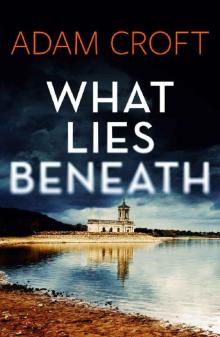 What Lies Beneath (Rutland crime series Book 1)
What Lies Beneath (Rutland crime series Book 1)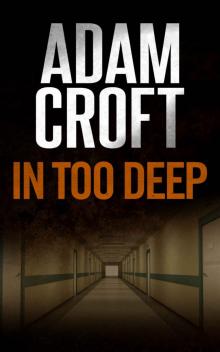 In Too Deep (Knight & Culverhouse Book 5)
In Too Deep (Knight & Culverhouse Book 5) Gone
Gone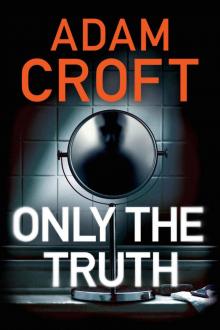 Only the Truth
Only the Truth Kempston Hardwick Mysteries — Box Set, Books 1-3
Kempston Hardwick Mysteries — Box Set, Books 1-3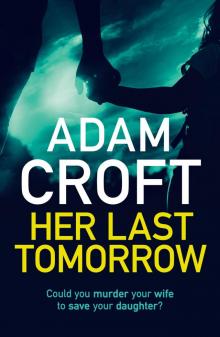 Her Last Tomorrow
Her Last Tomorrow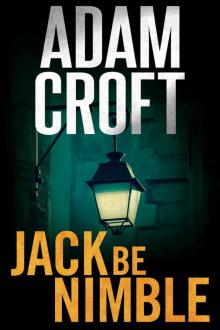 Jack Be Nimble (Knight & Culverhouse Book 3)
Jack Be Nimble (Knight & Culverhouse Book 3)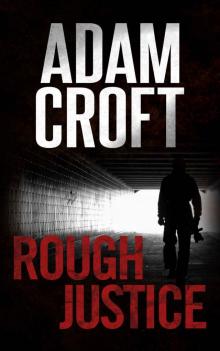 Rough Justice (Knight & Culverhouse Book 4)
Rough Justice (Knight & Culverhouse Book 4)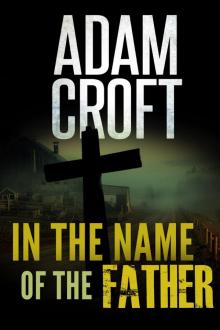 In the Name of the Father
In the Name of the Father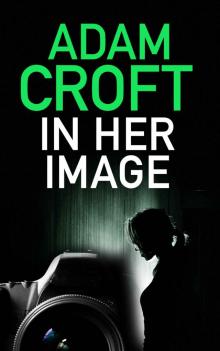 In Her Image
In Her Image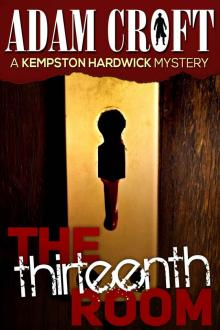 The Thirteenth Room (Kempston Hardwick Mysteries Book 4)
The Thirteenth Room (Kempston Hardwick Mysteries Book 4)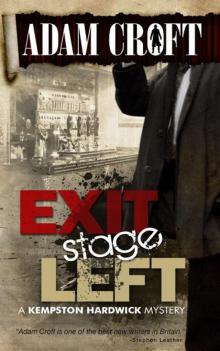 Exit Stage Left (Kempston Hardwick Mysteries Book 1)
Exit Stage Left (Kempston Hardwick Mysteries Book 1)